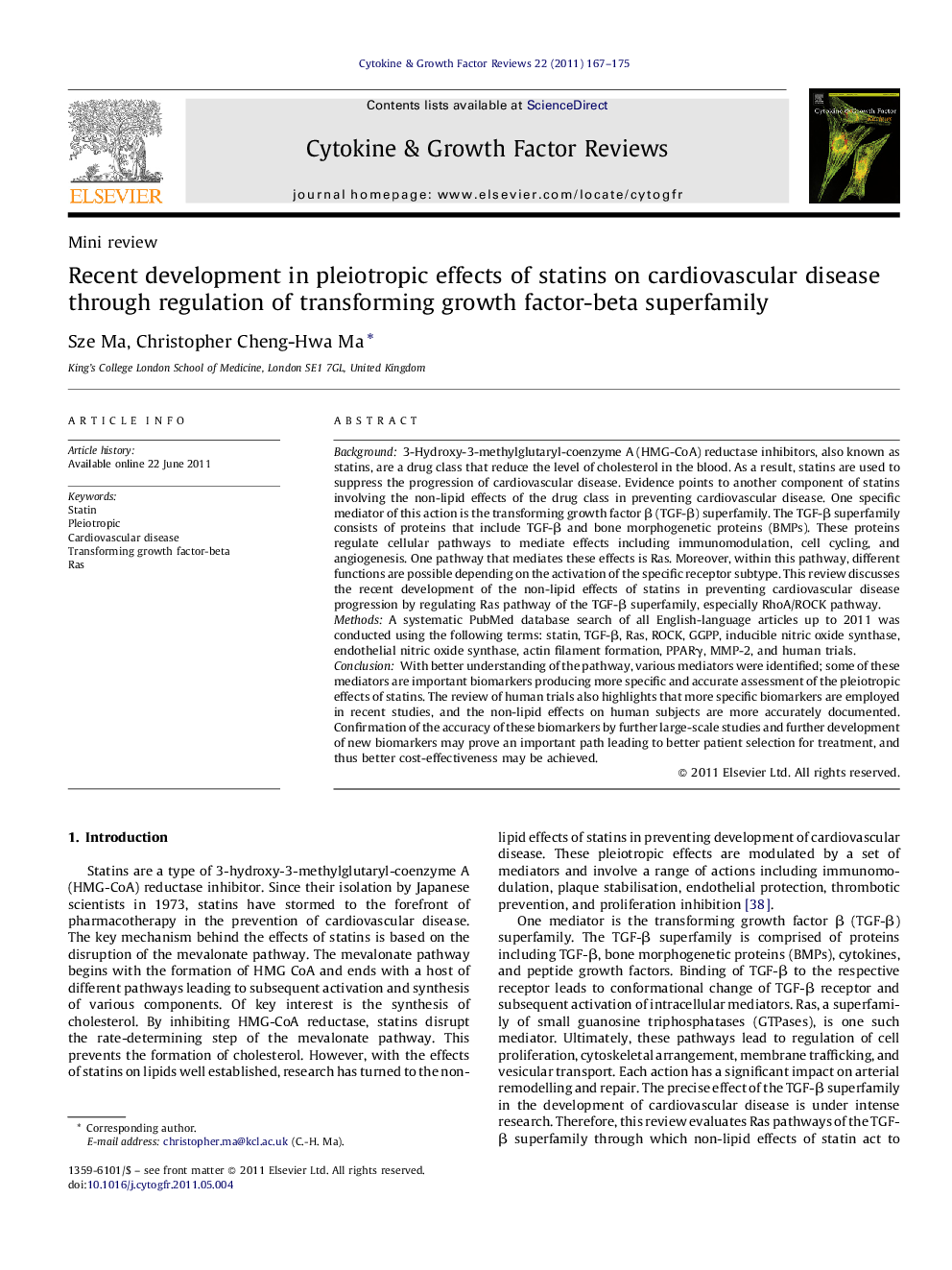| کد مقاله | کد نشریه | سال انتشار | مقاله انگلیسی | نسخه تمام متن |
|---|---|---|---|---|
| 2170611 | 1093390 | 2011 | 9 صفحه PDF | دانلود رایگان |

Background3-Hydroxy-3-methylglutaryl-coenzyme A (HMG-CoA) reductase inhibitors, also known as statins, are a drug class that reduce the level of cholesterol in the blood. As a result, statins are used to suppress the progression of cardiovascular disease. Evidence points to another component of statins involving the non-lipid effects of the drug class in preventing cardiovascular disease. One specific mediator of this action is the transforming growth factor β (TGF-β) superfamily. The TGF-β superfamily consists of proteins that include TGF-β and bone morphogenetic proteins (BMPs). These proteins regulate cellular pathways to mediate effects including immunomodulation, cell cycling, and angiogenesis. One pathway that mediates these effects is Ras. Moreover, within this pathway, different functions are possible depending on the activation of the specific receptor subtype. This review discusses the recent development of the non-lipid effects of statins in preventing cardiovascular disease progression by regulating Ras pathway of the TGF-β superfamily, especially RhoA/ROCK pathway.MethodsA systematic PubMed database search of all English-language articles up to 2011 was conducted using the following terms: statin, TGF-β, Ras, ROCK, GGPP, inducible nitric oxide synthase, endothelial nitric oxide synthase, actin filament formation, PPARγ, MMP-2, and human trials.ConclusionWith better understanding of the pathway, various mediators were identified; some of these mediators are important biomarkers producing more specific and accurate assessment of the pleiotropic effects of statins. The review of human trials also highlights that more specific biomarkers are employed in recent studies, and the non-lipid effects on human subjects are more accurately documented. Confirmation of the accuracy of these biomarkers by further large-scale studies and further development of new biomarkers may prove an important path leading to better patient selection for treatment, and thus better cost-effectiveness may be achieved.
► The pleiotropic effects of statin on cardiovascular disease are reviewed.
► These effects are regulated by transforming growth factor-beta through actin filament formation, nitric oxide synthase, MMP-2, and PPARγ.
► Statins were shown to exert positive actions on these factors.
► In the past ten years, human trials have been refined and indicate positive cardiovascular results.
► We conclude that the pathways and biomarkers of the pathways are important for future development.
Journal: Cytokine & Growth Factor Reviews - Volume 22, Issue 3, June 2011, Pages 167–175